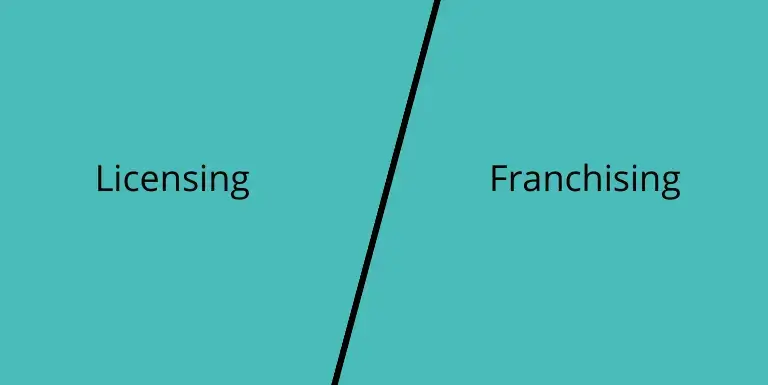Difference between Licensing and Franchising: If you are looking to venture into the business world but do not want the hassle of setting up a brand name of your own, it will help to know the difference between licensing and franchising.
If you belong in a company that wants to expand, these two options are often the most appealing strategies. Licensing and franchising are both good and subtle ways for business owners to effectively grow their businesses.
The costs and risks involved in the expansion process are often delegated to a third party so the original owners are not burdened with the process.
What is Licensing
Generally, a license is a contract whereby a party (the licensor) grants another (the licensee) the permission to use the former’s patents, trademarks, copyrights, designs or trade secrets.
Licensing is basically granting licenses to other entities or personalities.
The said license serves as solid proof of the permission to use the licensor’s intellectual property. In return, the licensee compensates the licensor through flat fees and/or royalty payments.
In licensing, the agreement or license itself will not be understood as a form of ownership transfer as regards to intellectual property.
The subject of the license will remain as an owned property of the licensor. It is just that the licensee will gain the right to distribute or exhibit copies of the intellectual property so long as the manner of doing so will not go beyond what was agreed in the fine print.

What is Franchising
Franchising, compared to licensing, involves a more complex set-up process and requires higher investment capital. The upside is that franchising remains to be a more affordable expansion option than opening new business locations or branches.
For a good example, take the case of McDonald’s as one of the best businesses that has effectively expanded through franchising.
As licensing is governed by the law on contracts, franchising is under the law on securities. Hence, licensing does not necessarily require registration as opposed to franchising. Additionally, territorial rights will not be an issue when it comes to licensing.
The licensee can sell similar licenses and products in the same geographic area together with other licensees. On the other hand, a franchisee must be offered such territorial right.
This is to ensure that franchised businesses do not encroach on each other’s profits. Direct competition is limited and supervised in franchising compared to licensing.
Difference between Licensing and Franchising
Meanwhile, the difference between licensing and franchising is that while the former refers solely to brand or intellectual property, the latter gives the franchisee permission to use its whole operating or business system as well in addition to the brand.
Franchising often even includes the franchisor’s distribution system and marketing campaigns in order to sell the products or services.
The catch is that the franchisee will pay the franchisor some upfront fees, royalties, and monthly or annual fees at times.
Despite the difference between licensing and franchising, there are things that make them confusing to those who are yet novices to the business world.
For instance, both licensee and franchisee are required to make royalty payments to the licensor or franchisor. Another thing is that they both refer to a third party’s use of the brand or intellectual property of the original business.